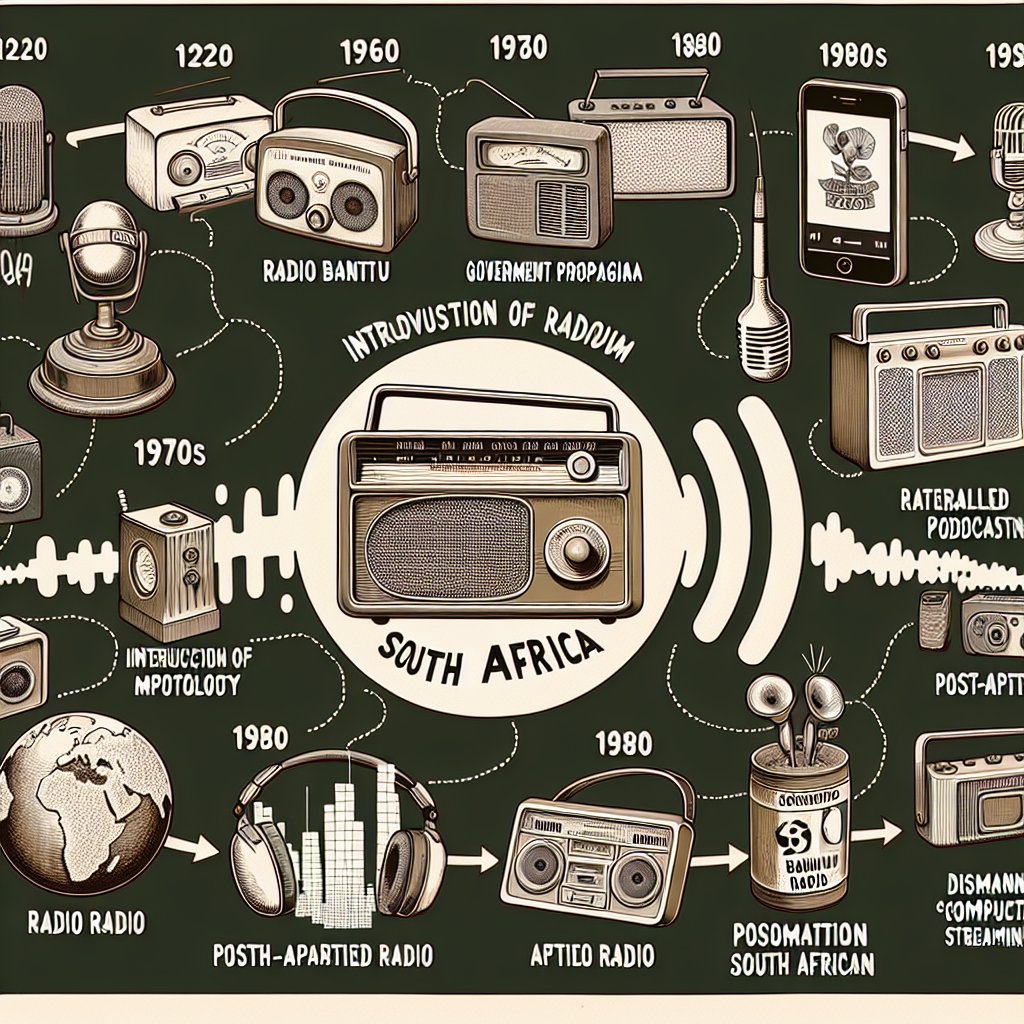Content created by AI
Celebrating a Century of Radio in South Africa: Evolution of the Airwaves
As the world marks the milestone of 100 years since the inception of radio broadcasting in South Africa, it’s an opportune moment to reflect on the medium’s profound evolution and enduring impact. Radio in South Africa has transcended its initial role as a government propaganda tool, becoming a staple of reliable communication and a trusted friend to millions.
In the early days, the medium served to project a positive image of South Africa to the international community, despite its internal turmoil and the rising opposition against the apartheid regime. Radio RSA, the official broadcaster of the government back then, painted a rather skewered image to distant ears, including those of Canadian listeners who found fascination with the exotic allure of distant broadcasts.
However, as South Africa’s international standings were being questioned, and the realities of internal conflict and segregation could no longer be contained, radio began to play a different role. Radio Bantu, for instance, introduced in 1960, and later expanded, was an attempt to cater to black South Africans and counter anti-government narratives.
The inception of FM radio brought enhanced sound quality, which the apartheid government hoped would dissuade listeners from the "scratchy" shortwave transmissions of stations that were more critical of its policies, including those run by the ANC’s Radio Freedom from across the borders.
The 1980s brought significant transformations to the broadcasting landscape. The establishment of “independent” bantustans came with their own broadcasting services, such as Capital Radio and Radio Bop, which were utilized to create a semblance of legitimacy for these regions. Despite the government's efforts, these stations began to air content and viewpoints that starkly contrasted with the SABC’s programming. They became platforms for sharing alternative narratives, including those from the ANC in exile, and sparked a gradual shift in listener perspectives.
South Africa’s post-apartheid broadcasting environment embraced newfound freedoms. The SABC monopoly was dismantled, bantustan stations were integrated into the national framework, and the airwaves saw a diversification with the rise of commercial and community radio stations.
Today, South African radio has not lost its pace in the digital age. While shortwave may not dominate as it once did, the convenience of streaming allows the global audience to stay connected to South African voices. Podcasting has introduced a liberating form of on-demand listening that transcends time zones and geographical barriers.
Nevertheless, at its core, radio remains about content and the message it delivers. It has always been a companion and a herald, evolving with technology but fundamentally unchanged in its intimate connection with its audience.
David L Smith, who has devoted nearly forty years to radio broadcasting, echoes this sentiment. He finds that despite the advances and shifts in how we consume media, the essence of radio prevails. It continues to be a celebration of voices, stories, and a testament to the resilience of human connection through sound waves.
Radio, against the backdrop of societal and technological change, signifies not only a technological advancement but an enduring human need for narrative, music, and a shared sense of reality. It's a centurial journey worth celebrating, as radio continues to be an integral thread in the fabric of South African culture.










